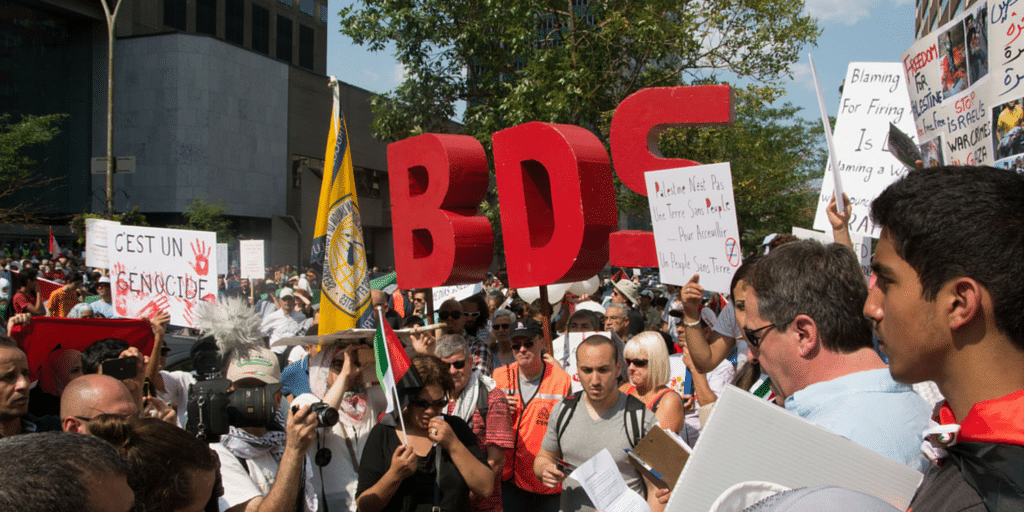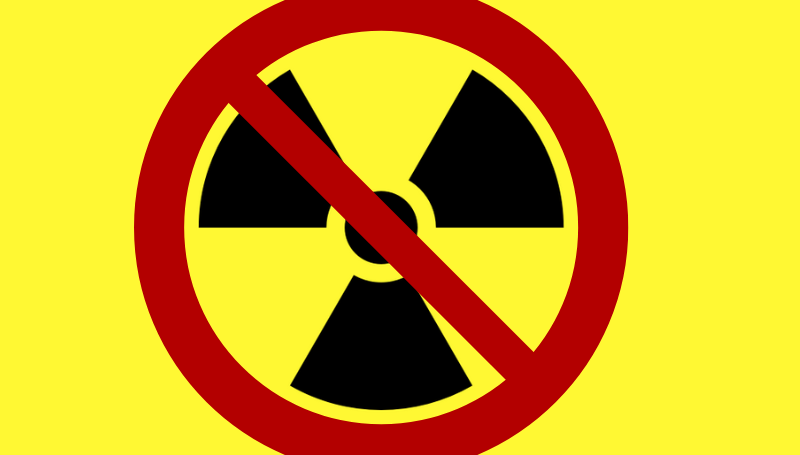Maayan Hoffman
JNS, July 14, 2022
“I think we have an opportunity to reassert what I think we made a mistake of walking away from—our influence in the Middle East. I want to make clear that we plan to continue to lead in the region and not create a vacuum that is filled by China or Russia.”
U.S. President Joe Biden and Israeli Prime Minister Yair Lapid on Thursday signed an agreement to prevent Iran from developing a nuclear weapon and that reaffirms the U.S. commitment to expanding and supporting peace among Israel and its moderate Arab neighbors.
The “Jerusalem U.S.-Israel Strategic Partnership Joint Declaration” states that America pledges to “never to allow Iran to acquire a nuclear weapon and that it is prepared to use all elements of its national power to ensure that outcome.”
However, when asked by a reporter during the subsequent press briefing at the Waldorf Astoria hotel in Jerusalem when the U.S. might abandon its diplomatic effort to revive the 2015 Joint Comprehensive Plan of Action (JCPOA) and instead adopt other measures, Biden declined to set a deadline.
“We’ve laid out for the leadership of Iran what we’re willing to accept to get into the JCPOA, and we’re waiting for a response,” he said. “When it will come is uncertain but we’re not going to wait forever.”
Thursday’s declaration also affirms the United States’ commitment to “work together with other partners to confront Iran’s aggression and destabilizing activities, whether advanced directly or through proxies and terrorist organizations such as Hezbollah, Hamas, and Palestinian Islamic Jihad.”
It likewise states that the US is prepared to use military force against Iran.
“Words will not stop them, Mr. President. Diplomacy will not stop them,” Lapid warned Biden on Thursday. “The only thing that will stop Iran is knowing that if they continue to develop their nuclear program the free world will use force.
“The only way to stop them is to put a credible military threat on the table,” the Israeli prime minister said. “On the side of terror stand people who will not hesitate to exploit any weakness, people who do not play by the rules.”
The agreement signed on Thursday reiterates the “unshakeable U.S. commitment to Israel’s security, and especially to the maintenance of its qualitative military edge.”
It states that these commitments are “bipartisan and sacrosanct, and that they are not only moral commitments, but also strategic commitments that are vitally important to the national security of the United States itself.” This includes a guarantee to uphold the terms of the current historic $38 billion security Memorandum of Understanding. It also commits additional funds for supplemental missile defense aid.
Palestinian issue downplayed
The Israeli-Palestinian conflict is mentioned in only a single paragraph of the joint declaration, as a commitment to “continuing to discuss the challenges and opportunities in Israeli-Palestinian relations.”
The agreement states that Biden “reaffirms his longstanding and consistent support of a two-state solution and for advancing toward a reality in which Israelis and Palestinians alike can enjoy equal measures of security, freedom and prosperity. The United States stands ready to work with Israel, the Palestinian Authority, and regional stakeholders toward that goal.”
In his remarks Thursday, Biden called on Israel not to take any steps that could harm efforts to reach such a solution, one that he said would allow Israel to remain both Jewish and democratic.
When asked a question by a reporter from the Al-Arabiya network about the two-state solution, Lapid reaffirmed his own support for the peace process and spoke positively about it and in terms of being necessary for Israel’s future.
“To any country, any nation that wants peace and normalization with us, we say: ‘ wasahalan, shalom, welcome,’” the prime minister said in his address.
Abraham Accords magnified
Another element of the declaration is to advance the goal of achieving peace between Israel and its moderate Arab neighbors, including Saudi Arabia.
The United States is “committed to continue playing an active role” in the Abraham Accords and ensuring regional security, “including in the context of President Biden’s upcoming visit to Saudi Arabia,” with the aim of expanding the “circle of peace” to include more Arab and Muslim states, the declaration says.
Biden will travel Saudi Arabia on Friday, where he is scheduled to meet with Crown Prince Mohammed bin Salman after taking a historical flight directly from Israel to Jeddah.
The meeting is expected to result in an agreement to allow more Israeli commercial planes to fly over Saudi Arabia in exchange for the transfer of two Red Sea islands from Egypt to Saudi Arabia, with Israel’s backing.
A U.S. plan to integrate regional air defenses to better protect Israel and its neighbors from Iranian missile attacks will also likely be discussed.
Biden has been criticized by some in the U.S. as legitimizing Saudi Arabia’s human rights violations by traveling to the country. The president told reporters in Jerusalem on Thursday that he plans to bring up human rights, but that the purpose of the visit is to reassert American influence in the region, given that his position on the Jamal Khashoggi affair is already clear.
“I think we have an opportunity to reassert what I think we made a mistake of walking away from—our influence in the Middle East,” the president said. “I want to make clear that we plan to continue to lead in the region and not create a vacuum that is filled by China or Russia.”
Biden is also meeting with leaders from Qatar, Kuwait, Oman and Iraq while in Saudi Arabia. Lapid asked Biden to deliver a message to them: “Our hand is outstretched for peace. We are ready to share our technology and experience, ready for our people to meet and learn about one another, ready for our scientists to collaborate and our businesses to cooperate,” Lapid said.
Earlier in the day, India, Israel, the United Arab Emirates (UAE) and the United States participated in the first leaders’ meeting of the I2U2 Group, a forum to deal with food security and other global challenges like water, energy, transportation, space and health.
The meeting was also meant to “reaffirm our support for the Abraham Accords and other peace and normalization arrangements with Israel,” according to a statement disseminated by the White House ahead of the forum.
“We intend to mobilize private sector capital and expertise to modernize infrastructure, advance low carbon development pathways for our industries, improve public health and access to vaccines, advance physical connectivity between countries in the Middle East region, jointly create new solutions for waste treatment, explore joint financing opportunities, connect our startups to I2U2 investments, and promote the development of critical emerging and green technologies, all while ensuring near- and long-term food and energy security,” the statement continued.
Visa Waiver Program on its way
Other aspects of the Jerusalem agreement signed on Thursday include singling out the tragedy in Ukraine and agreeing to support the invaded nation; collaborating on efforts to fight anti-Semitism and the Boycott, Divestment and Sanctions movement; and sharing technology and innovation.

Lapid and Biden also affirmed their commitment to accelerate their shared efforts to enable Israeli passport holders to be included in the U.S. Visa Waiver Program.
Biden told reporters that his team is “working very, very hard” to have the program up and running within the next several months.
To view the original article, click here


